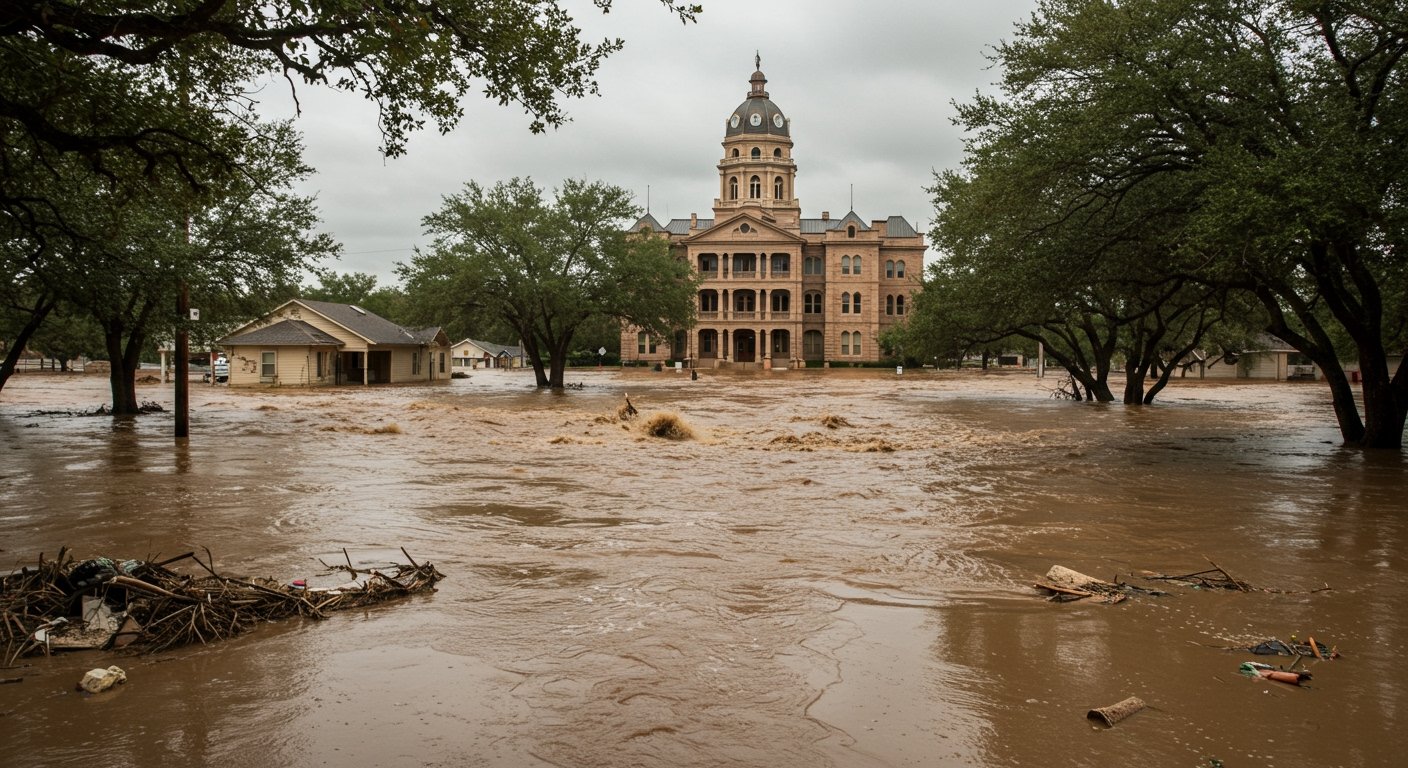A recent wave of devastating floods sweeping across Central Texas has reignited a debate over the state’s preparedness for natural disasters, casting a spotlight on a key piece of legislation that failed to pass just months before the water rose.
House Bill 13, a bipartisan measure aimed at bolstering emergency response capabilities statewide, passed the Texas House of Representatives but ultimately stalled in the Senate during the legislative session. Its failure has drawn renewed attention in the wake of the deadly floods, particularly in areas like Kerr County along the Guadalupe River, which suffered a significant death toll.
The Proposed Enhancements of House Bill 13
The rejected legislation sought to implement several critical improvements to Texas’s emergency infrastructure. At its core, House Bill 13 proposed establishing a statewide grant program specifically designed to fund upgrades and enhancements for emergency communications systems across Texas counties. This included the potential for deploying outdoor warning sirens, a crucial tool for alerting residents in immediate danger zones.
Beyond communications, the bill also envisioned the creation of a state council dedicated to developing a comprehensive statewide emergency response plan. This council would have worked towards standardizing preparedness protocols and facilitating coordination between various agencies and local governments. Furthermore, the bill included provisions for grants specifically earmarked for first responders, aiming to ensure they are adequately equipped and trained to handle diverse emergency scenarios, from floods and hurricanes to wildfires.
Voices for Preparedness: Advocates and Their Arguments
Proponents of House Bill 13 argued passionately that the state needed to invest proactively in preparedness, especially to assist counties lacking the financial resources to build robust emergency systems on their own. Among the key advocates was Democratic Texas state Rep. Joe Moody, a co-sponsor of the bill, who recently discussed its implications in an interview with NPR’s Michel Martin.
Rep. Moody, representing an urban area, emphasized the bill’s potential to create a safety net for the entire state, recognizing that disasters can strike anywhere. He was joined by Republican Rep. Ken King, another co-author whose district in the Panhandle had recently been severely impacted by wildfires. Rep. King’s experience highlighted the diverse range of emergencies Texans face and underscored the argument that robust, statewide systems are necessary to effectively respond to various threats.
Their collective argument centered on the idea that investing in communications and planning before a disaster is far more effective and potentially less costly in terms of both lives and property than reacting post-event. They stressed that many rural and less populated counties struggle to fund essential emergency infrastructure, making state-level support programs vital.
Obstacles and Opposition
Despite passing the House, House Bill 13 encountered significant resistance, primarily centered on its estimated initial cost. The proposal came with a price tag estimated at $500 million, a substantial figure that raised concerns among some lawmakers regarding state expenditures and fiscal responsibility.
Critics questioned the scope and cost of the proposed programs, debating whether the state or local entities should bear the primary financial burden for these improvements. This opposition ultimately contributed to the bill’s failure to advance through the Senate, leaving the proposed grant programs and state council unestablished.
Reconsideration in the Wake of Tragedy
The landscape of this debate has shifted dramatically following the recent Central Texas floods. The rapid rise of rivers, the extensive property damage, and the tragic loss of life – particularly the significant death toll recorded in Kerr County along the Guadalupe River – have forced a reevaluation of emergency preparedness priorities.
Sources indicate that some lawmakers who previously opposed House Bill 13 are now reconsidering their positions. The visible impact of the floods has underscored the very vulnerabilities that the bill aimed to address, making the arguments for enhanced communications and coordinated planning seem more urgent and compelling.
The devastating events serve as a stark reminder that natural disasters pose an unpredictable and significant threat to communities across Texas. While the immediate focus remains on relief and recovery efforts, the legislative failure of House Bill 13 and the subsequent floods are likely to remain central to discussions about the state’s future strategies for protecting its residents from the increasing frequency and intensity of extreme weather events. The debate over funding, responsibility, and the necessary level of state intervention in local emergency preparedness is far from over, amplified now by the tragic consequences recently experienced along Texan waterways.






